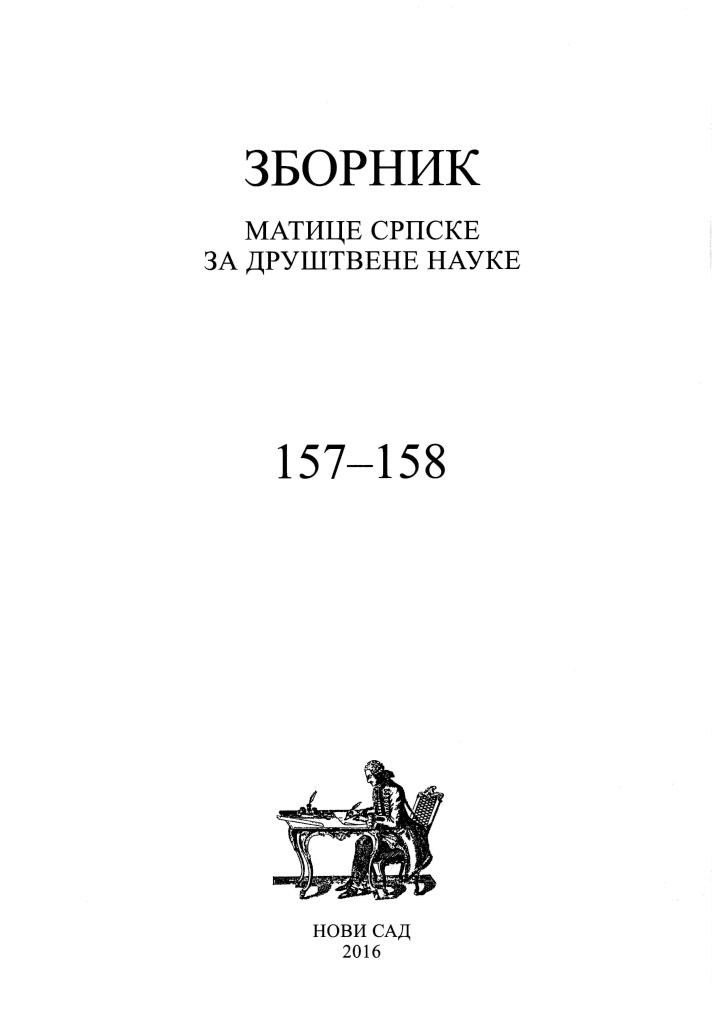Кнез Павле Карађорђевић и нова власт у Југославији 1945.
Prince Pavle Karađorđević and New Yugoslav Authorities in 1945
Author(s): Dragan Aleksić, Ivana Krstić-MistridželovićSubject(s): Government/Political systems, WW II and following years (1940 - 1949), History of Communism
Published by: Матица српска
Keywords: rehabilitation; regency; monarchy; Prince Pavle Karađorđević; new authorities; war crimes; AVNOJ; justice trustee; Kingdom of Yugoslavia
Summary/Abstract: During the final phase of the war, the Communist Party of Yugoslavia started to introduce revolutionary changes, both in society and the system of government. One of the most important issues for Yugoslav communists was the question of the abolition of the monarchy. However, the new state holders had to regulate their rule according to the basic principles of democracy and constitutionality (out of respect for international community, especially the allied states: the United Kingdom and the Soviet Union), although they had unlimited power at disposal. This liability came as a consequence of compromise arrangement with monarchy, made after the Allies insisted on joint government formation and respect of Kingdom of Yugoslavia’s constitutional and legal forms, following the fact that this country was sole recognized subject of international law. Compromise agreement, participation of communists in government, and the fact that British Prime Minister Churchill was a monarchist protected King Petar from the decision of AVNOJ (Anti-Fascist Council for the National Liberation of Yugoslavia) about his removal. Another representative of the monarchy, Prince Pavle, although dismissed in 1941, interned in Africa and excluded from the Royal House, became a convenient substitute for (at least formal) conflict between the communists and the monarchy. Former Prince Regent could not be incriminated for war crimes, since he spent the war abroad, so the new authorities needed a new legal formula to convict him. The solution was given by the Presidency of AVNOJ, the temporary supreme legislative body, which produced the act: “The Decision of Declaring Prince Regent Pavle Karađorđević a War Criminal and an Enemy of the People”, with regard to his political acts while he was a Regent. This legal act is unsustainable from the standpoints of both legality and legitimacy. Actually, the basic characteristic of this act is an ideological persecution enveloped in an acceptable legal form.
Journal: Зборник Матице српске за друштвене науке
- Issue Year: 2016
- Issue No: 157-158
- Page Range: 431-462
- Page Count: 32
- Language: Serbian

